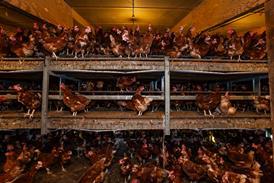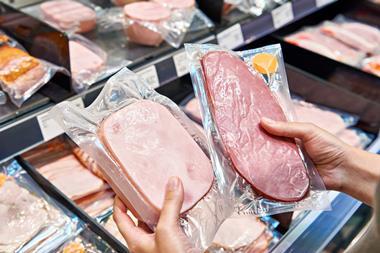More than one in 10 beef cutting plants is failing key BSE checks, according to a nationwide FSA audit.
Banned vertebral column from beef carcases has entered the human food chain as a result, although none is thought to have gone for export.
The FSA said there was only a "negligible" risk to human health.
FSA inspectors checked 465 plants across the UK during the summer and found 47 of them were not following the rules on so-called Specified Risk Material. Only Northern Irish plants got a clean bill of health.
Under EU rules, they are supposed to remove the vertebral column from all cattle aged 24-30 months, stain it and send it to special rendering plants for disposal. This slashes the risk of the agent causing BSE entering the food chain.
But in 5% of plants, carcases were being sent on with SRM still attached. The FSA said it was concerned by the findings and would explain the rules to industry again.
"Measures aimed at achieving compliance have been put in place," said a spokesperson. These include meetings with industry stakeholders, taking enforcement action against non-compliant plants, providing advice on legislative requirements and working with local authorities to raise butcher awareness.
But the independent meat trade said the compliance rate was encouraging. "Irregularities found in only 10% of establishments reflect the bureaucratic complexities of animal by-product legislation and none have any relevance at all for human health," said Norman Bagley of AIMS.
He blamed the shift in policy that lowered the age limit for SRM removal from 30 months to 24 - a trade-off in the reopening of the export market. "The implications of these intrinsically pointless legislative amendments were poorly explained to industry initially."
The audit has been notified to the FVO in Brussels, which is scheduled to report on British BSE controls next month.
Banned vertebral column from beef carcases has entered the human food chain as a result, although none is thought to have gone for export.
The FSA said there was only a "negligible" risk to human health.
FSA inspectors checked 465 plants across the UK during the summer and found 47 of them were not following the rules on so-called Specified Risk Material. Only Northern Irish plants got a clean bill of health.
Under EU rules, they are supposed to remove the vertebral column from all cattle aged 24-30 months, stain it and send it to special rendering plants for disposal. This slashes the risk of the agent causing BSE entering the food chain.
But in 5% of plants, carcases were being sent on with SRM still attached. The FSA said it was concerned by the findings and would explain the rules to industry again.
"Measures aimed at achieving compliance have been put in place," said a spokesperson. These include meetings with industry stakeholders, taking enforcement action against non-compliant plants, providing advice on legislative requirements and working with local authorities to raise butcher awareness.
But the independent meat trade said the compliance rate was encouraging. "Irregularities found in only 10% of establishments reflect the bureaucratic complexities of animal by-product legislation and none have any relevance at all for human health," said Norman Bagley of AIMS.
He blamed the shift in policy that lowered the age limit for SRM removal from 30 months to 24 - a trade-off in the reopening of the export market. "The implications of these intrinsically pointless legislative amendments were poorly explained to industry initially."
The audit has been notified to the FVO in Brussels, which is scheduled to report on British BSE controls next month.



















No comments yet